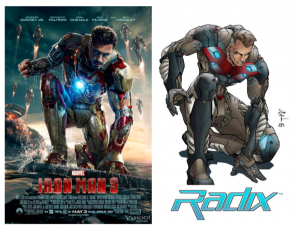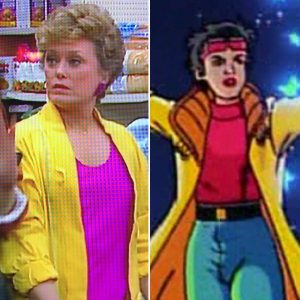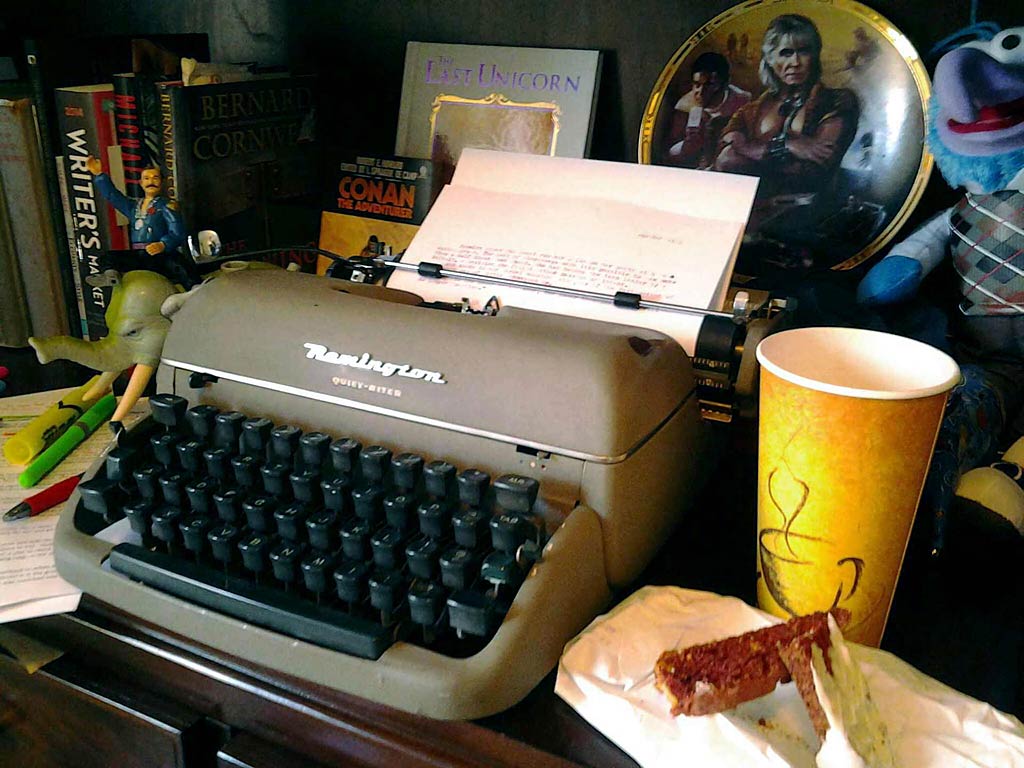I wrote this post in 2017 and never posted it.
I was afraid it would come across as too negative (though it’s certainly not my intent). As of late social media is fractured over the AI art issue… sadly, 99% of folks can’t see the bigger picture… and it’s a big picture of epic proportions.
The AI art issue is like gasoline on what I was trying to convey in this article.
I think it’s time now, to post this one.
Sometimes when I close my eyes, I see a future where there are no more new stories.
I’ve mentioned this to a few people over the years and everyone thinks I’m nuts.
But to me, it’s strictly a numbers game:
- Every story conceived by the first writer was of course, original.
- 1,000 writers take up the craft and there’s surprisingly little similarity. The human condition is incredibly complex!
- 100,000 writers start putting pen to paper on a global scale. We’ve got genres now, some similarities in story, BUT we’ve got a broader view of life—we can write about past, present and future events, both real and imagined. The possibilities are endless… Or are they?
- 10,000,000 writers. We’ve got an encyclopedia of genres and subgenres. The similarities between stories are stark. There is more content in a given genre than one could ever read in a lifetime.
- Every human on the planet can read and write, and does so in their free time—everyone’s a writer. 10 billion writers. Billions of “new” stories every year.
And then there’s the real rub, story creation is not destructive. The old is NOT burned away and used up as the new arrives. Storycraft is a cumulative process, logged, recorded and cataloged for all time.
I know what you’re thinking…
Culture changes, technology changes and everyone brings their unique voice and imagination to the table. YES, ABSOLUTELY and this creates a huge amount of material that can be produced. But as the population grows and more and more people write, this huge amount of “unique” material shrinks exponentially.
Like I said, it’s all about numbers.
At some point, everything becomes obviously derivative.
We may already be at the vanguard of that point. Different, but only slightly different (than something else… somewhere).
This became very evident to me years back when I was hired to create a world for a high-fantasy video game. I sat down to detail a race of dwarves and elves, to populate the world. It was then that I realized I had been creating dwarves and elves for literally, thirty years.
This basic, fundamental element of a fantasy setting was staring at me like a monumental, beastly task. How could I create these guys AGAIN, for the forty-something time and not be derivative to everything that I had created before it (not to mention ALL the material by other writers, past and present).
The answer was simple. I couldn’t.
Not really.
I focused on some tiny details and gave (as far as I know) a “fresh spin” on things. I took a religious angle on the dark elves, I liked it a lot. But I’m sure somebody, somewhere, has already done religious-centric elves.
At the end of the day, the dwarves were still dwarves and the elves were still elves. Anyone familiar with fantasy, would be familiar with what I created. AND THIS IS JUST ME, ONE GUY.
Think of dwarves and elves written by 50,000 guys, over the next decade.
The sheer volume of creative material… the sheer volume of story potential pursued is truly difficult to grasp. But the end result isn’t.
Eventually, you run out of ideas.
Or more precisely, the material is so derivative, you have to go further and further into the material to find elements that separate one piece of fiction from the other. “No, no, check it out… my dwarves wear sandals and worship the sun… your dwarves wear boots and only come out at night.” The same, but slightly different.
I know most folks reading this article are moaning and groaning.
Try writing the three little pigs 100 different ways.
If you want more tangible proof to what I’m saying, you don’t need to look any further than Marvel comics. At the time of writing this article, I just floated a news article on twitter where retailers and customers are upset with Marvel’s constant cross over events and barrage of first issues.
Do you think Marvel is sitting there saying: “We’ve got new stories from Frank Miller, Alan Moore, Chris Claremont (among others) continuing our classic character lines, OR we can just push some new number #1s and hit another cross over event?”
Marketing and finances aside, I’m not in on the meetings, but I can pretty confidently say, “I don’t think they’ve got the former one.”
At best, story lines in step of the original series are few and far between. Though I suspect they don’t even have them at all. The well is dry.
If the well was still flowing, new #1s, constant crossover events and cancelations of original series (like the Fantastic Four) wouldn’t take place. They would just keep going, because their new fresh stories would keep audiences engaged.
At the same time, the industry is also frothing at the mouth for alternate versions… Genders re-imagined. Powers re-imagined. EVERY POSSIBLE ANGLE EXPLORED. A marketing bonanza, in a mad dash rush towards the tipping point.
All the same, only slightly different.
And you don’t see the well running dry, as it were, in writing only… it’s really at every level of the creative process.
At least once every couple of weeks I see some artist post a cover he did—usually something quite generic, like a super hero standing in front of a flapping flag or a villain looking diabolical sitting in front of a chess board. And said artist, floats a cover from a major publisher which depicts a similar setup claiming foul.
How many ways can you show a hero posing in front of a flag, or a evil genius plotting over a chess board?
 Or like this one on the left. Marvel’s actually being sued for this one. Ya know cause it’s a mech-suited guy kneeling on one knee—clearly stolen… or maybe there’s only so many ways a human being can position themselves. And the numbers really do catch up with everyone, even mech-suited heroes, eventually.
Or like this one on the left. Marvel’s actually being sued for this one. Ya know cause it’s a mech-suited guy kneeling on one knee—clearly stolen… or maybe there’s only so many ways a human being can position themselves. And the numbers really do catch up with everyone, even mech-suited heroes, eventually.
It’s really not people stealing. It’s just numbers… the same, but slightly different…
 I have to add this one too. This is one of my favorites. Of course somebody posted it as a joke, but it really shows the point. Humans look for patterns. And the more content that’s created, the more potential patterns there are to see.
I have to add this one too. This is one of my favorites. Of course somebody posted it as a joke, but it really shows the point. Humans look for patterns. And the more content that’s created, the more potential patterns there are to see.
That’s one of the Golden Girls clearly stealing from Jubilee (or is that vice versa? I’m too lazy to google which one came out first).
At some time in the future (probably sooner than we think), I reckon they’ll be a big shift in entertainment and we won’t write stories the way we do today.
Sure they’ll be one or two guys on the planet creating something new every now and then. But the volume of material will be so complete, for the most part, it’ll ALL be said and done.
We won’t look to new material in the same way we do today. Mark my words.
I think it’ll be more like searching the internet is today, everything is already there, it’s just a matter of finding what you want and using it for your application. Customizing the packaging and presentation to fit your immediate need. And even then, the customization will be the same, only slightly different.
I suspect at some point a big shift in entertainment will come, not creating the characters and stories themselves, but engineering worlds, and rules within the worlds—setting parameters and letting each person write their own story. Allowing new generations to experience the stories first hand. (much the way open world sandbox games have come to be in the gaming sector).
Virtual reality, augmented reality, Holo-decks and such.
And now with the new AI revolution about to overtake society like a tsunami, this entire thing is amplified.
For better or worse, human society has always been ruled by gate keepers. In the comic industry, this has been the publishers, Diamond, and to a lesser extent the artists themselves. If the artists weren’t willing to illustrate it, the comic wasn’t getting produced…
but now, with the advent of AI art, soon, everyone will be an artist.
This article isn’t to debate AI, it’s already here.
The point is, the gate is about to be smashed, everyone with an internet connection will soon be able to make a comic of impressive quality.
Another 8 billion stories added to the library.
No one believes me. Most folks can only see the world through the eyes of one life-time… but we’re approaching a critical mass for entertainment.
I don’t know how the future’s going to pan out.
I just know for us writers and creators, making entertainment got a whole lot easier… and simultaneously, a whole lot harder.
An era is ending.
The entertainment world is going to soon reflect life as a whole, to a much greater degree and more intimate level.
The meaning of life, if there is one, lies hidden. It’s personal. You live your life and just get what you can out of it.
Such will be the case for creators.
My advice, don’t worry about how different or similar it is to what’s already out there, just make it your own. Celebrate that we’re alive in a time where there’s still room left for us to say what we want to say… and someone, somewhere eager to hear it.
https://memory-alpha.fandom.com/wiki/Prime_Factors_(episode)
▪
About the Author —
Nick Macari is a full-time freelance story consultant, developmental editor and writer, working primarily in the independent gaming and comic markets. His first published comic appeared on shelves via Diamond in the late 90’s. Today you can find his comic work on comixology, amazon and in select stores around the U.S. Visit NickMacari.com for social media contacts and news on his latest releases.
